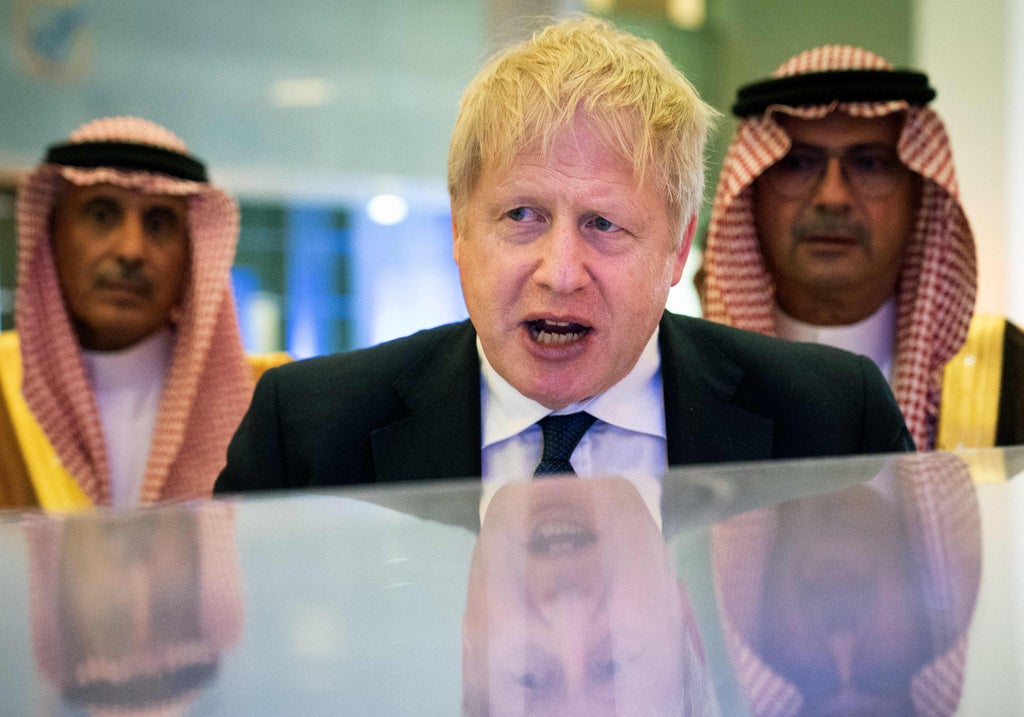
It is uncertain whether Brexit free trade agreements negotiated by Boris Johnson's government will provide any "actual economic benefits", an influential committee of MPs has warned.
In a scathing report released on Friday the Public Accounts Committee said the department of international trade had been too secretive and not kept parliament properly informed about what it was doing.
And the cross-party committee warned there was a risk consumer standards could slip because of the deals – with possible "trade-offs across different policy areas, such as agriculture, the environment and human rights”.
Tory MP Sir Geoffrey Clifton-Brown, who deputy chairs the committee, said the department for international trade was "really struggling to point to tangible wins for British business, consumers or our own agriculture sector" from its programme of negotiations.
The committee's report warns: "There is a lack of clarity about how the department will measure whether it is achieving benefits from its programme of trade negotiations so that parliament can hold it to account for its progress.
"The department currently publishes the impact assessments it makes prior to trade agreements being implemented, but the department has not set any associated targets.
"There is no guarantee that the agreements will deliver actual economic benefits unless the department provides vital support to help businesses use the agreements, particularly for smaller businesses wanting to export worldwide."
Trade economists have consistently warned that the benefits of free trade agreements with other countries are being oversold by the government.
One analysis conducted by the University of Sussex UK Trade Policy Observatory last year found that all the trade deals signed by the government so far since Brexit were worth 178 times less than the expect hit from leaving the EU single market.
But the government says the agreements could have more unknown benefits in the future.
Deputy committee chair Sir Geoffrey said the department for international trade "seems to have forgotten that its first and core duty is to deliver for UK consumers, business and our environment".
He said the department's aim should be "to create deals that will deliver real economic benefits while offering the choice of food, goods and services at the standards and prices they expect and have long enjoyed".
"The PAC has previously expressed concerns that our consumer protection system is unable to deal with the new arrangements, and recent reports of tax fraud and modern slavery breaches cast doubt on capability in other critical parts of the trade system," he said.
“The department needs to communicate what benefits we might expect from this brave new world we’ve entered and what trade-offs we face."
He concluded: "DIT is constrained by the deliberations and choices of our biggest trading partners - this is a problem of its own making, and for it to fix: families struggling out of the pandemic and into a massive cost-of-living crisis must not be the ones to pay."
The trade department has faced repeated ridicule in recent years as deal after deal is projected by the government’s own economists to have tiny economic benefits.
An elusive deal with the US was expected to have just a 0.16 per cent boost to gross domestic product (GDP) over the next 15 years, while deals with Australia and New Zealand are expected to produce gains of close to zero.
But ministers are keen to pursue the deals so they can point to a benefit of leaving the European Union customs union.
The PAC's findings were endorsed by the chair of another committee, Angus Brendan MacNeil, who heads the International Trade Committe. He said there was "now clear agreement across the House of Commons that the Government is not being transparent about the deals it is signing and that it needs to allow greater parliamentary scrutiny".
He added: "Treating MPs as add-ons at the end of the process is simply not good enough. Today’s report also underlines the need for the Department for International Trade to produce the broader trade strategy we have been calling for, rather than simply engage in ad hoc negotiations. Doing so will allow us to see where it has been successful, what trade-offs it has made, and where its negotiations have not been up to scratch.”
A spokesperson for the Department for International Trade said: “Getting a good deal for consumers and businesses is at the heart of our trade strategy. We have already secured over £770bn of trade deals with 70 countries plus the EU, while continuing to attract inward investment and boost our world-class exports.
“Last year we launched our landmark Export Strategy so more businesses can seize new opportunities in the world’s fastest growing markets and bring prosperity to every corner of the country.
“We take parliamentary scrutiny of Free Trade Agreements (FTAs) very seriously and have made enhanced commitments to scrutiny and transparency at every stage of negotiations, going far beyond our statutory requirements.”







